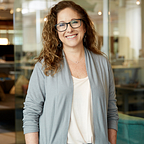Overhauling Higher Education For Today’s World
Around seven years ago, I had an epiphany that the delivery of higher education would change dramatically. This was triggered by the fact that we had shifted our hiring game in the tech community from caring about pedigree (MIT, Stanford, etc.) to “tell me what you have actually done”. While pedigree demonstrates academic aptitude, it does not speak to a candidate’s ability to execute. Now more than ever, especially in a time when building is going to be what stimulates the economy, those who can execute will excel.
My vision seven years ago (which still stands) is the disruption of higher education as we know it today. Instead of high school students aspiring to get into their top choice college or university and moving on campus for a singular experience, we will move towards a model where young people want to leave home, further their learning, but care less about the brand of institution(s) they attend, or even getting a degree, and care more about their ability to learn what they need to be productive in society. Parents will care less about brand and the degree too, but will want their kids to have a solid, post-secondary, education in a safe environment. College age students (18–22'ish) want to be with likeminded peers who are either focused on similar academic interests or they want a diverse community to expose them to other areas they may not otherwise know about. I loved living in a dorm at UMASS Amherst with peers pursuing all sorts of topics I knew nothing about. I still attribute my interest in marketing to having a roommate that was a marketing major while I was an art major.
Now that most colleges and universities are forced to teach online, and the cost of higher education is through the roof, we are primed to change the shape of post-secondary education. I believe young people in the next 3–5 years will want to move out of their homes (and their parents will be eager for them to do the same), to a city of interest and pursue further education by joining live-in learning communities vs. applying to a specific college.
The model would look something like this:
- Live-in learning communities will be developed in popular college cities (Boston, NY, SF, Austin, etc. — perhaps eventually abroad as well). These will be dorm-like buildings with high bandwidth on-line learning capabilities like high-tech video rooms, Jamboards, and amenities such as gyms and community kitchens. There will be Resident Assistants and administrators to oversee safety concerns of parents and establish behavioral norms. There will likely be some sort of student-run government, clubs and special programming depending on the live-in learning community.
- Qualified, remote educators will offer courses similar to how HBX delivers online experiences today (below) or simply via Zoom with smaller groups.
- Prospective students will apply to live in these communities based on city of interest, peer group and other criteria (amenities, special programming, etc.). Applications will focus on diversity, inclusion and ability for students to contribute to the learning community vs. SAT/ACT scores and high school accomplishments. All applicants will be peer reviewed and cost will be commensurate with ability to pay. In a utopian world (one can dream), the government would subsidize these programs.
- Live-in learning communities will provide cross-university, curricula based on skills development. For example, a computer science program may be a series of courses offered from not just local universities, but online courses from across the country. Certifications or hours of learning may replace degree programs. A foundational curriculum of core competencies such as public speaking, project management and financial skills will be woven into every program.
- Most important, live-in learning community curricula will be focused on experiential learning. Most if not all courses will be project-based — some individual and many team oriented so students are developing real-world experiences that also demonstrate their ability to execute.
- Study groups may form or be required in each live-in learning community or on-line. New opportunities for social connections and networking will be within and between learning communities.
- Completion of programs may be based on committee reviews and a PhD-theses-like defense. Alumni communities will be fostered post-completion of any program.
- Prospective employers will recruit from these live-in learning communities. Students’ inherent training to work remotely will be an asset to the growing number of companies establishing remote workforces. The foundational skills development would be seen as a key differentiator of these programs.
- This will of course require current colleges and universities to partner with whomever creates these live-in learning communities. The question is when, not if, these partnerships will form. For many universities, this will ensure their survival and could enhance vs. dilute their brand.
While there will still be some professions, like doctors and lawyers, that may still need the discipline of a more rigid degree program, I can imagine many students (and parents) taking advantage of the ideas above. Perhaps there are entrepreneurs out there already developing this idea. If so, send them my way…I’d love to support their efforts! …and if you have other ideas about this concept, let’s riff.
